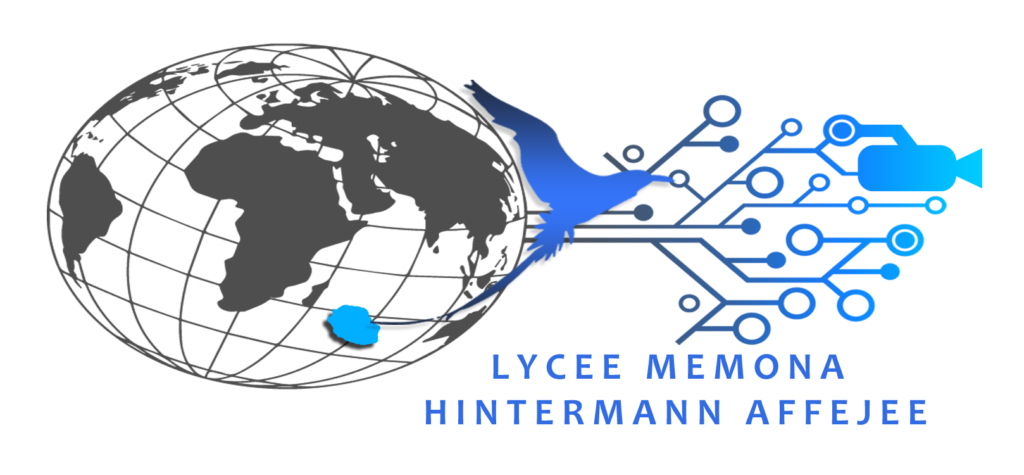Lycée Mémona Hintermann-Affedjee has both general and vocational courses. Rather new – it started its first academic year in 2017 - it is now fully functional. It currently accommodates students from 5th form to 7th (22 forms in total) form as well as those preparing for vocational diplomas, specifically media techniques and digital technologies with a teaching staff of 111 teachers, a total of 1036 students and 58 non-teaching staff.
Though our school is ‘’young’’, we are proud to credit ourselves with a three-year long Erasmus project as our pedagogical involvement goes beyond strict academic work. Besides this project, through partnerships with South-Africa, Australia and Germany, we were able to carry out linguistic projects and actions and we are now working on a new project with Germany. The vocational syllabus also includes compulsory work placement periods and some of our students have been given the possibility to go to Spain where they will be staying for a month.
We are convinced that this new project will open up further opportunities to our students and help them to strengthen their experience and knowledge of international environment. Unlike metropolitan France, Reunion Island cannot take advantage of numerous neighbouring nations and cultures. Consequently, job and career prospects are quite limited and it is our role to help them to a decent professional life. Indeed, our school joining in the project serves this purpose. Enabling our young students to discover European diversity with trips to Poland, Italy, Spain, Romania and metropolitan France is the main goal of our commitment to the KA2 Erasmus project. For their families, it is a way to have our small and remote island better known abroad, in Europe and in the world. So far, it has undeniably proved highly effective on the students’ capacity to produce a steady and much consistent work over a three-year period. A lot of our students were born into a social class plagued by unemployment and lack of qualification. Nearly 50 percent of them live on social aid and are scholarship holders. Absenteeism averages 7 percent. Such projects give them the incentive to regain a desire for studying and to contemplate a brighter future.
